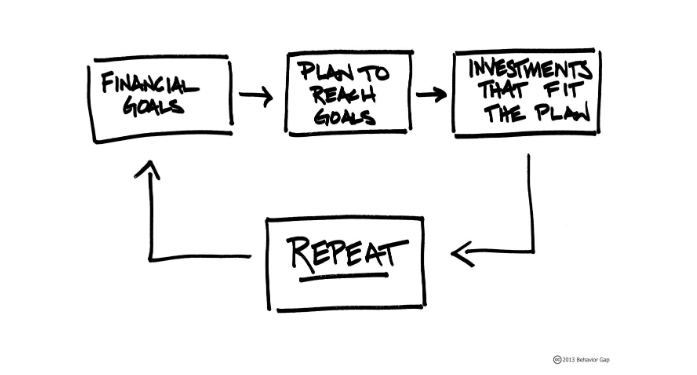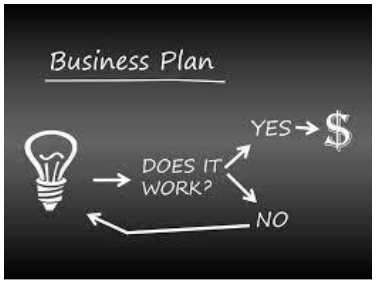
There’s a big difference between having a business model and making a business plan. A lot of people get so focused on the details of their plan that they forget to focus on the more important question of whether or not their idea is even feasible in the first place.
Before you spend a lot of time and energy creating a business plan, take some time to assess your business idea and see if it has a chance of succeeding. TutorHelp.Club business experts suggest entrepreneurs to ask themselves the following questions before starting a new business:
- How does your product or service compare to what’s already out there?
- What are the potential costs and expenses associated with starting and running this business?
- Are you confident that there’s a market for your product or service?
- What are the risks and potential challenges involved in starting this business?
- How much money do you realistically think you can make in the first year?
- Do you have the skills and resources required to run this business?
- Is there a risk of losing money on this venture?
- What are the potential benefits of starting this business?
- How much time and effort will be required to make this business successful?
- Are you comfortable with the level of risk involved?
If you can’t answer these questions confidently, it may be a sign that your business idea is not yet ready for prime time.
What’s the difference between a business model and a business plan?
A business model is a conceptual framework that outlines how a business operates. It includes the company’s mission, vision, values, products and services, target market, and key strategies. A business plan is a more detailed document that outlines the steps needed to start and grow a business. It includes information about the company’s history, goals, marketing and sales strategies, financial projections, and more.
Many people get so focused on creating a perfect business plan that they forget to focus on developing a sound business model. A well-executed business model can be the difference between success and failure, so it’s important to take the time to get it right.
Types of Business Models

There are many different types of business models, but some of the most common include:
- Production-based Business Model: This model is based on the idea of producing and selling a product or service. In this type of business, the company manufactures or assembles a product and then sells it to customers.
- Service-based Business Model: This model is based on the idea of providing a service to customers. In this type of business, the company provides a service that delivers value to the customer.
- Online or E-Commerce Business Model: This model is based on the sale of products or services over the internet. In this type of business, the company sells products or services to customers through a website or online store.
- Advertising-based Business Model: This model is based on the idea of selling advertising space or time to other businesses. In this type of business, the company sells advertising to help other businesses promote their products or services. Online advertising business models are becoming increasingly popular. These include online ad networks, online classifieds, and pay-per-click (PPC) advertising.
- Franchise Business Model: This model is based on the idea of selling franchises to others. In this type of business, the company sells the rights to use its brand and business model to other entrepreneurs. This allows the company to expand its reach without having to open new locations.
- Licensing Business Model: This model is based on the idea of licensing intellectual property (IP) to others. In this type of business, the company licenses its IP to other businesses in exchange for a royalty or fee. This allows the company to generate revenue from its IP without having to produce or sell any products or services.
- Commission-based Business Model: This model is based on the idea of earning a commission for selling someone else’s product or service. In this type of business, the company earns a commission for each product or service it sells on behalf of another business.
- Multi-Level Marketing (MLM) Business Model: This model is based on the idea of recruiting others to sell a product or service. In this type of business, the company earns income by recruiting other people to sell its products or services. The company also earns a commission on the sales generated by its recruits.
- Subscription-based Business Model: This model is based on the idea of charging a fee for a service or product. In this type of business, the company charges customers a recurring fee to use its services or products. This allows the company to generate revenue over time from its customers.
- Affiliate Marketing-based Business Model: This model is based on the idea of earning a commission for referring customers to others. In this type of business, the company earns a commission for each customer it refers to another business. This allows the company to generate revenue by promoting other businesses’ products or services.
- Freemium-based Business Model: This model is based on the idea of providing a basic service for free and then charging for premium features. In this type of business, the company provides a basic level of service for free and then charges for additional features or services. This allows the company to attract more customers and generate more revenue.
- Crowdfunding Business Model: This model is based on the idea of soliciting donations from others to fund a project or venture. In this type of business, the company raises money from others to help finance a project or venture. This allows the company to get started without having to invest any of its own money.
- Accessories-based Business Model: This model is based on the idea of selling accessories to go with a product. In this type of business, the company sells products that are used to enhance or compliment another product. This allows the company to generate revenue by selling products that are not essential to the main product.
- Social Media Business Model: This model is based on the idea of using social media to generate traffic or sales. In this type of business, the company uses social media to attract traffic or customers and then converts that traffic into sales. This allows the company to generate revenue by using social media to drive traffic to its products or services.
- Service Aggregators: This model is based on the idea of providing a platform for others to sell their services. In this type of business, the company provides a platform for other businesses to sell their services. This allows the company to generate revenue by charging a commission for each service that is sold through its platform.
Types of Business Plans

There are many different types of business plans, but some of the most common include:
- Executive summary: This is a brief overview of the entire plan. It should include the company’s mission, vision, and goals, as well as a description of the products or services offered.
- Marketing plan: This document outlines the company’s marketing strategy, including its target market, marketing channels, and budget.
- Sales plan: This document outlines the company’s sales strategy, including its target market, sales channels, and budget.
- Financial plan: This document includes financial projections for the business, including income statements, balance sheets, and cash flow statements.
- Operations plan: This document outlines how the business will be run, including staffing requirements, procedures, and policies.
If you’re not sure which type of business plan is right for you, there are many templates and resources available online. You can also consult with a business advisor or accountant from TutorHelp.Club for help.
Developing a Strong Business Model
You need to consider several key elements when developing a strong business model:
- Target market: You need to know who your target market is and what they want or need.
- Products and services: You need to know what products or services you’re selling and how they benefit the customer.
- Business proposition: You need to explain why customers should do business with you instead of your competitors.
- Value proposition: You need to explain how your products or services are different and why they’re worth the price.
- Pricing: You need to set pricing that is fair and profitable for your business.
- Location: You need to consider where your business will be located and how it will impact your customer base.
- Distribution: You need to determine how you will distribute your products or services to customers.
- Logistics: You need to determine how you will manage your inventory and fulfillment processes.
- Technology: You need to identify the technology you need to run your business and how it will be funded.
- Branding: You need to create a strong brand that represents your business.
- Culture: You need to develop a company culture that supports your business goals.
You should also consider the legal and financial implications of starting a business. You may need to register your business with the state, get a tax ID, and establish a business bank account. You should also research the best way to structure your company and how to protect your intellectual property.
There are many resources available to help you develop a strong business model. The Small Business Administration (SBA) offers a variety of guides and templates and TutorHelp.Club can also help you get started. With the right planning and execution, you can create a successful business that meets your needs and goals.



0 responses on "Learn Strategy: Find a Business Model Instead of Making a Business Plan"